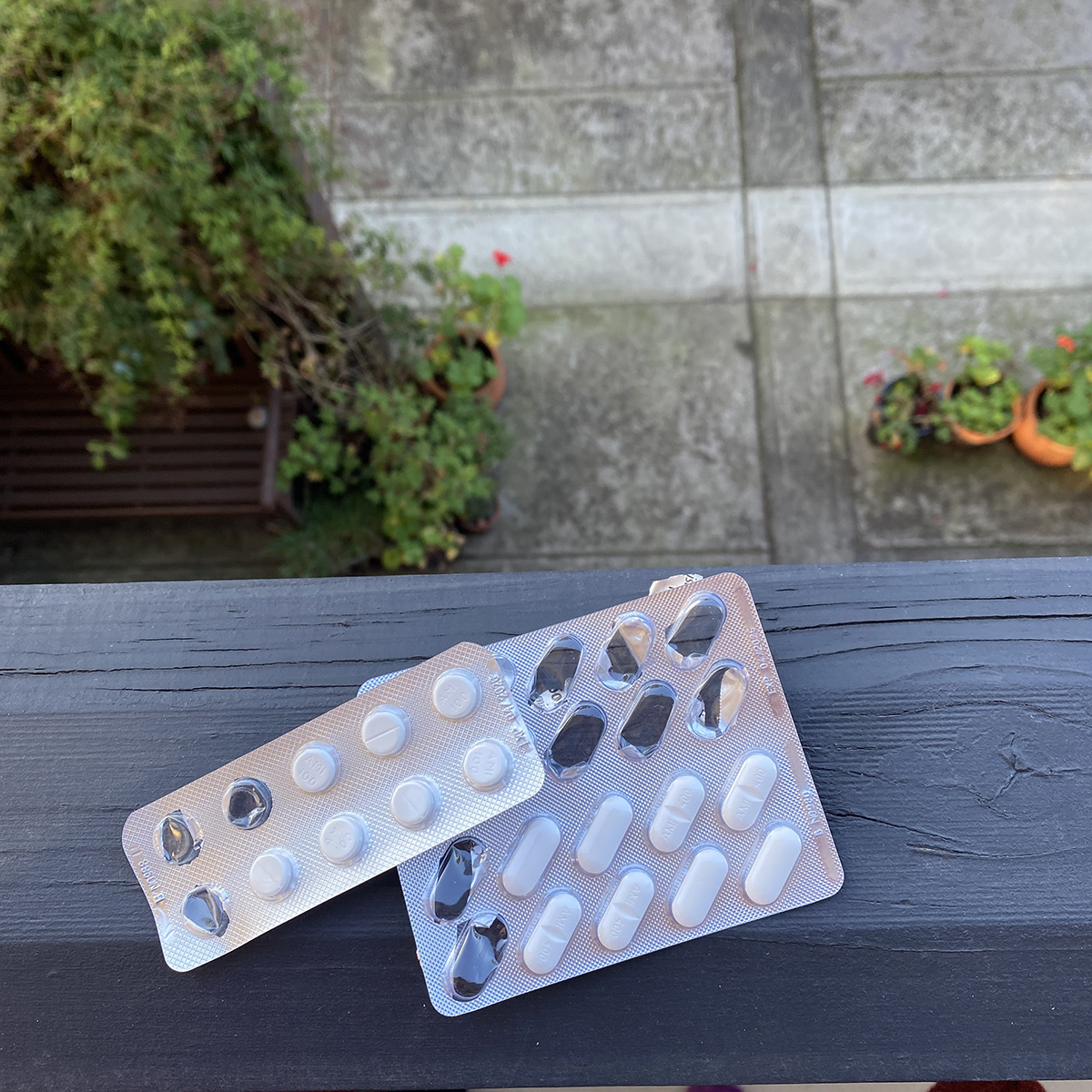So I have some exciting news. Or at least I hope it is good news (in other words, I hope this will not be my downfall). As of Friday night, I am 50 mg down on my dose of amisulpride. I ended up biting the bullet then because it was a natural break in the flow of my medication doses (end of a strip), and I had spent an evening feeling like I just have too much medication in my system.
So, how does it feel?? I feel quite GOOD actually. Or at least I am noticing a broader and deeper range of emotions, which is always nice. I have noticed that I laugh more deeply, and have been angrier and also happier. So perhaps the mirtazapine is coming through a bit more with a reduction of the dose. Who really knows. But I definitely more talkative, generally. And that is one of the reasons I decided to give this a try.
It has been quite a few weeks or maybe even more than a month since my sparkly new psychiatrist wrote the script for the dosages of Solian that will help me to get down from 600 mg to 500 mg. 450 mg is where 10 % of the receptors in my brain will be drained of the dosage, but I told my psychiatrist about what happened when I reduced from 600 mg to 400 mg from the end of 2016 (including psychoses in both 2018 and 2019), and he thought maybe I should drop to 500 mg and keep it there for quite a while.
He has a point though. He has a few points.
Pharmacology research
One thing that I asked him to clarify is that we are trying to AVOID psychosis. . . It is just that he suggests there is research to say that the theory about a chemical imbalance is a myth. And also there is a medication (that I don’t know the name of yet) that can be used to manage psychoses in the short term, without having to permanently take the medication, so I am keen to find out what that one is.
His point though, in our first appointment was that the evidence suggests that people who take antipsychotic medication have pretty much the same recurrence of psychotic episodes as people who don’t take this medication. And as I am well aware there are LONG TERM side effects of this strong neurotropic medication.
I weighed this up for a while in my mind. On the positive side, I looked back on my arts and culture blog and found that I was so much more alert and awake and active when I reduced last time. However, on the negative side, the psychosis that I had after 18 months or so of the reduced dose was stronger than say the one I had earlier this year.
But that is the point really. I have had two psychoses in the past year alone. The medication might help a bit, but it is clearly not stopping them completely. And what about my long term brain health??
Avoiding psychosis
I didn’t jump in straight away, because the memory of my last psychosis is still pretty fresh in my mind (and on my places on the internet). It was such a MESS. I hate it. I don’t want to get there again. But, sadly, this is just the way that it is for me. I can’t cut that part of my brain out of me, so I am going to have to learn to live with it somehow.
The other confounding factor is menopause. I am noticing that I am having more nights of insomnia lately, where my mind will hook onto something stressful in my life and just not let go for hours and hours at night. So far I have only had one night of completely no sleep though, and maybe some of the ACT resources can help me to manage this too.
(I guess I was worried because changed sleep patterns precipitated at least the last two (if not three or four total), outbursts of my psychotic illness).
In the end the pull of my ‘towards’ moves, or the idea that I would be a better friend and participant in life generally got me over the line.
The best thing about my new psychiatrist though is that we will be doing ACT therapy together for quite a while, so maybe he can teach me MORE about how to weather the storms of psychosis, without such a BIG mess.
Referrals
If you are reading this and you like the sound of what my new psychiatrist is saying, you can find him at the Brisbane ACT Centre (he does telehealth appointments). His name is Dr Rob Purssey. I found his details on the mirtazapine Facebook group actually. Because he is very sympathetic to the need to reduce these strong and possibly unecessary medications.


Leave A Comment